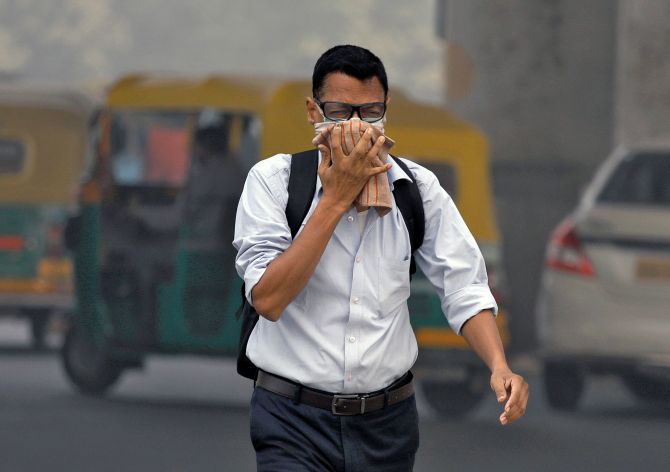Air pollution may make Covid more deadly: Study
October 08, 2020 09:35

Researchers have found long-term exposure to urban air pollution may have made Covid-19 virus more deadly. "Both long-term and short-term exposure to air pollution has been associated with direct and indirect systemic impact on the human body by enhancing oxidative stress, acute inflammation, and respiratory infection risk," says Donghai Liang of Emory University, first co-author on the recent paper along with Liuhua Shi.
In a recent study conducted by researchers analyzed key urban air pollutants, including fine particle matter (PM2.5), nitrogen dioxide (NO2), and ozone (O3), across 3,122 counties in the United States from January to July.
To examine the association between ambient air pollutants and the severity of Covid-19 outcomes, they investigated two major death outcomes, the case-fatality rate (i.e., number of deaths among the people who are diagnosed with Covid-19) and the mortality rate (i.e., number of Covid-19 deaths in the population).
The two indicators can imply the biological susceptibility to deaths from Covid-19 and offer information about the severity of the COVID-19 deaths in the general population, respectively.
Of the pollutants analyzed, NO2 had the strongest independent correlation with raising a person's susceptibility to death from COVID-19, Eurekalert reported.
A 4.6 parts per billion (ppb) increase of NO2 in the air was associated with 11.3 per cent and 16.2 per cent increases in Covid-19 case-fatality and mortality rate, respectively.
Moreover, researchers discovered that just a 4.6 ppb reduction in long-term exposure to NO2 would have prevented 14,672 deaths among those who tested positive for the virus. The team also observed a marginally significant association between PM2.5 exposure and Covid case-fatality rate, whereas no notable associations were found with ozone, Eurekalert added.
"Long-term exposure to urban air pollution, especially nitrogen dioxide, might enhance populations' susceptibility to severe COVID-19 death outcomes," said Liang.





 © 2024 Rediff.com -
© 2024 Rediff.com -